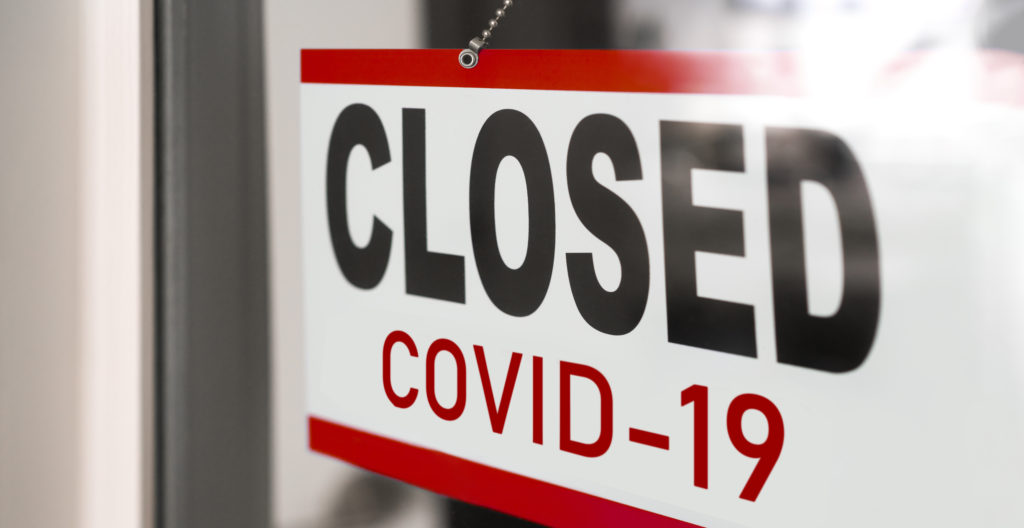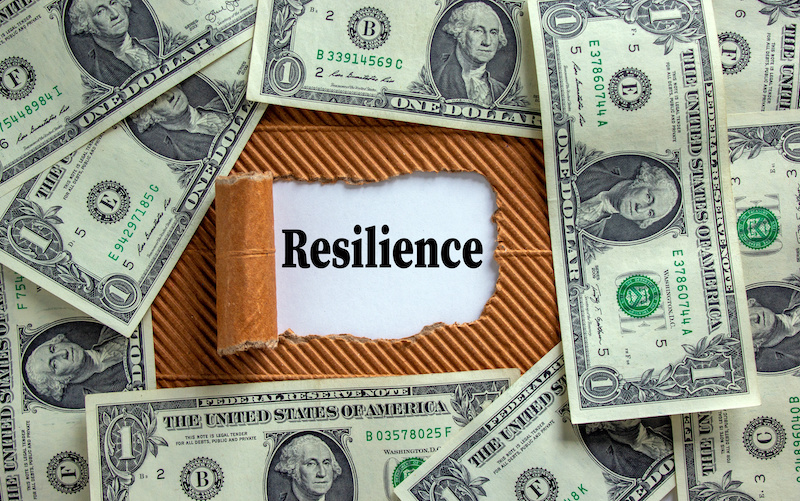A Mindset for Compromise: Interconnectedness, Shared Burdens and Commercial Sustainability During and After the Coronavirus Pandemic
Franklin CaplanApril 27, 2020

Many businesses both locally and federally have been affected by the pandemic (Adobe)
Editor’s Note: Caplan’s remarks were originally composed for the Key Biscayne Chamber of Commerce Board of Directors on April 23.
We are roughly six weeks into the social distancing mandates that have so disrupted major parts of our local economy. The duration of these measures is unknown.
The effects in terms of public health are nothing short of lifesaving, but they are devastating to many small businesses and households. Transactions and commercial activity overall oscillate, but trend toward flatline.
At last count, nearly 60% of our local businesses are closed indefinitely. The national job loss figure passed 20 million. Business and household finances are stressed; often past breaking. The federal stimulus programs, loan programs and direct subsidies will help to some extent, but not enough.
This public health emergency will eventually end. Consumer demand, purchasing power and cash cushions will normalize – possibly reflecting a new normal. But it is a foregone conclusion that serious economic distress will persist after social distancing ends.
It is not reliably determinable how long this will be so or how dire the problems will be for those who reopen, putting aside the consequences for those who do not reopen and the families who depended on shuttered businesses.
Which prompts us to consider: What can be done locally to ameliorate the adversities and best assure the healthy restoration and sustainability of the businesses serving Key Biscayne?
The Key Biscayne Chamber of Commerce Board has reached some insights, apart from governmental programs, that might prove helpful. These point to the importance and value of compromise. Sharing burdens related to recovery may make for a swifter and more complete recovery, with reduced losses and fewer lasting deprivations.
The bedrock truth is that the health of the business community and the vibrancy and quality of the community overall are interdependent. And in many ways, commercial interests are also interdependent.
The essential use of credit and debt in the marketplace, for example, depends on reliable performance among commercial actors – owners, operators, suppliers, service providers, landlords and lenders. Stress or breakage at any link in the commerce chain can affect the entire chain. A tenant’s rent supports the landlord’s mortgage payment. Employee wages support a family, helping that family participate in commerce. And so on.
We may expect that commercial actors will find it necessary and even helpful to infuse some flexibility and tolerance in their trading relationships. That is not to say all businesses will be able to reopen. The future of some may turn on hard judgements about what is and what is not possible – decisions that might in turn depend on what third parties are willing and able to do to help.
In other words, reopening and viability for some may depend on whether their trading partners will cooperate by softening requirements during a transition period.
With a mutually cooperative workout mentality – meaning compromise where achievable – it may be that more businesses will recover, fewer and milder defaults will reverberate up and down the economic ladder, and more households will be stabilized.
Mutual self-interest speaks here. For landlords and tenants and operators and lenders, contractual accommodations that both parties can accept may well enable the best-case recovery prospects.
That’s because Party A’s closure may not be the best outcome for Party B, despite Party A’s temporary inability to fully perform contract terms. Party B may think it preferable to replace Party A rather than accommodate Party A’s diminished performance. But if there is no replacement, or if a replacement is not assuredly an improvement for Party B, compromise and self-interest begin to converge.
With reasonable give-and-take, it is possible that one party’s reduced performance can, during a transition period, satisfy reduced but still sufficient requirements of the other party.
For example, perhaps an operating business can’t pay full rent for a time, but taxes, insurance and utilities can be kept current and some rent can be paid. That way, the operating business can continue so as to become viable again. That may be preferable to a landlord to a legal claim, a shuttered location and the challenge, cost and uncertainty of re-letting.
This all points to shared pain. Relationship parties may be well-served in finding case-by-case balance where necessary and where possible, under modified commercial terms until normalcy resumes – whatever that will be like. That requires cooperation and compromise when possible. That in turn requires patience, prudence and a contextualized perspective in calculating self-interest.
During the Great Recession, the Federal Reserve, Congress and Obama Administration recognized that some of the Wall Street institutions were too big to fail, because their failure would trickle down broadly and deeply, compounding failures.
A similar point applies here and now. We’re too interdependent to stand by without trying to rescue commercial relationships when possible. Yes, it’s harder to do that when one is vulnerable. But the fact that so many are and will be vulnerable reinforces the need to cooperate. Sharing the pain may ameliorate disruptions and help minimize protracted adversities.
Shopping locally will certainly help. The slogan is often repeated: “We’ll get through this together.” “Together” will involve loyalty from consumers and compromise among business interests in many cases.


